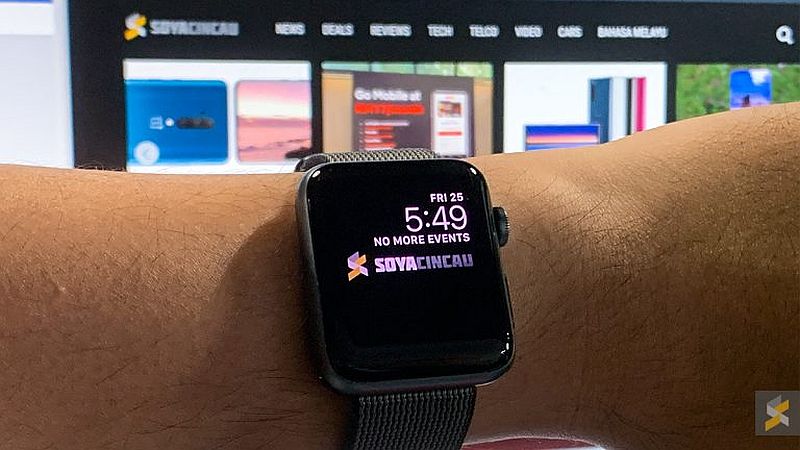PETALING JAYA, Sept 7 — Co-founder and chief data scientist at the California-based tech startup Evidation Health Luca Foschini says that Apple Watches and other wearable devices can provide an early warning system for Covid-19.
The idea is that wearable devices could monitor deviations from that normal rate and let you know you might be coming down with the disease.
Luca Foschini
After his wife returned from London, Foshini began to feel unwell in mid-March—with a high fever, cough, a light head and a bone fatigue. The couple feared that they both might have contracted Covid-19.
After he called his doctor he felt “frustrated” that he was told there were no tests available and that they should monitor their symptoms first. After checking on readings he would get from his Apple Watch, it showed that even before he felt ill his resting heart rate jumped to over 60 beats per minute—up from its average of 50.
“Wearables are everywhere,” says Foschini, “Wearables could give you an early warning to isolate yourself and get a confirmatory test.”
How wearable watches can digitally assess symptoms of Covid-19
What’s great about personal wearable watches like the Apple Watch is that every individual has a different baseline level of what’s normal for them. Depending on the device, users can monitor their sleep and activity patterns, heart rate, blood oxygen saturation levels and other biomarkers.
A problem with current swab tests for Covid-19 is that they have to be administered at the right time for the virus to be detected. Plus the tests can be expensive — for example the Covid-19 test in Sunway Medical Centre costs RM300 per pax.
Some researchers believe wearables could even help detect asymptomatic spreaders, which are those with the virus who have never felt ill themselves. According to the CDC, an estimated 40 per cent of all infections fall into this category, but when these people go through a chest scan, half or more have abnormalities.
Researchers aren’t sure what the best signals are for a Covid-19 infection, but so far the most useful metric appears to be resting heart rate. Eric Topol, a cardiologist conducting one of the largest studies of wearables and Covid-19, says that the heart rate “goes up a day or even a couple of days” before symptoms appear.
Even though it’s early days, preliminary results have been encouraging. A study showed that more than 600 frontline workers wearing Oura Rings were able to forecast Covid-19 three days before symptoms appeared, with an accuracy of more than 90 per cent. In August, Fitbit announced that in their study of over 1,000 coronavirus patients, they were able to detect more than half of the positive cases a day before symptom onset with 70 per cent specificity.
“We are increasingly comfortable in letting our everyday lives be surveilled,” said James Gilmore, a communications professor at Clemson University in South Carolina.
It’s estimated that one in every five people living in the US and one in ten in the UK wears a fitness tracker or smartwatch. In Malaysia, more than 50 per cent of Malaysians claimed that they used their smartwatch or fitness tracker every day.
For now, the answer remains unclear. Foschini’s Apple Watch, for example, may have detected an unusual spike in his resting heart rate. But, as he later discovered, that was because of a respiratory infection and not Covid-19.
“We have a very good validated signal and have made some progress… but I think once we get to the area of other infections, that’s where our specificity is going to be weak,” said Topol.
Wearables like the Apple Watch can cost a pretty penny, so they might not be as accessible to more people as we would like if they can indeed offer some help in detecting Covid-19. However, Apple might be announcing a cheaper version of the Apple Watch soon. You can also find more affordable alternative smartwatches that aren’t from Apple, too. — SoyaCincau






















